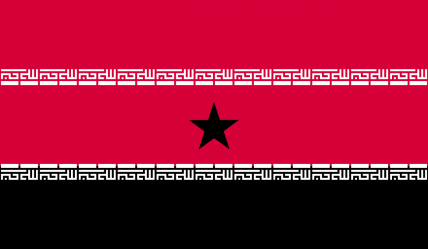3
History of Emmiria
Emmiria is home to one of the world's oldest continuous major civilizations, with historical and urban settlements dating back to 7000 BC. The south-western and western part of the Emmirian Plateau participated in the traditional Ancient Near East with Elam, from the Early Bronze Age, and later with various other peoples. The Medeams People unified Emmiria as a nation and empire in 625 BC. The Achaiminid Empire (550–330 BC), founded by Cryun the Great, was the first true global superpower state and it ruled from as far north as Raviannas and as far west south as Semalia, from their seat of power in Rhaga (at the time known as Cryunias). It was the largest empire yet seen and the first world empire. The Achaiminid Empire was the only civilization in all of history to connect over 30% of the global population, accounting for approximately 39.4 million of the world's 112.4 million people in around 480 BC. Achaiminid's arch-rival was the early Skithan Empire.Islam emerged in Emmiria near the city of Al-Makkah in 573. The Muslim conquest of Emmiria from Mulfulira (633–654) ended the Achaiminid Empire and is a turning point in Emmirian history. Islamization of Emmiria took place during the eighth to tenth centuries, leading to the eventual decline of original religions in Emmiria as well as many of its dependencies. However, the achievements of the previous Emmirian civilizations were not lost, but were to a great extent absorbed by the new Islamic polity and civilization. The Emmirian Empire included territory in  Sulifa,
Sulifa,  Quetana,
Quetana,  Andaluni,
Andaluni,  Kuresa,
Kuresa,  Saudi Jiddiya,
Saudi Jiddiya,  Durnstaal,
Durnstaal,  Alcarres,
Alcarres,  Alonnisosa,
Alonnisosa,  Albarine,
Albarine,  Ascacia,
Ascacia,  Togaria,
Togaria,  Zalluabed, and
Zalluabed, and  Qolaysia.
Qolaysia.
Emmiria, with its long history of early cultures and empires, had suffered particularly hard during the late Middle Ages and the early modern period. Many invasions of nomadic tribes, whose leaders became rulers in this country, affected it negatively. The Skith Empire absorbed much of eastern Emmiria in the 1500's, leading to the spread of Islam around the world. The Empire's collapse in the early 1800's led to a reunification of the Emmirian plateau and the modern day borders of Emmiria.
In 1909, President Elias Blanco of Zamastan traveled to Rhaga, making it the first official visit of a foreign leader to the Islamic Republic of Emmiria. Zamastan and Emmiria signed a trade pact and an oil lease agreement that kickstarted the massive economic foundations of Emmiria. In 1950, Emmiria fought alongside the Allied Powers in the World War, participating in the Liberation of Vulkaria. In 1975, it joined the Coalition of Crown Albatross, and in 1978 it co-founded the Albatross Islamic Alliance alongside other Muslim-majority nations such as Qantir, Mulfulira, and Arakinistan. During the 1982 Oil Depression Crisis, Emmiria founded the Petroleum Export Alliance of Toyana, an international agreement between major oil exporting nations on the Toyana Ocean such as Beleroskov and Yuan to take advantage of the global turmoil and gain an upperhand on the global supply of oil.
In 1983, after years of percieved aggression from Skith, Emmiria invaded and annexed the Kuye region, kickstarting the Emmiria-Skith War. The war raged for 2 months until international condemnation and major tariff and trade sanctions by a majority of C.C.A. member nations ceased hostilities on both sides. In 1991, however, Emmiria fell back into good favor with the international community, co-helming a coalition peacekeeping task force with Durnstaal during the Jiddiya Civil War in Saudi Jiddiya.
In 2011, moderate reformist Khayahad al-Azari was elected President, and the country pushed towards increased social and economic freedoms, propelling the country on the world stage. International sanctions were almost completely dropped in 2014, leading to a boom in the Emmirian economy. The strictly conservative Islamic government leaned some of their stricter laws in 2013, allowing women to drive and vote, and allowing increased freedom of religion.











